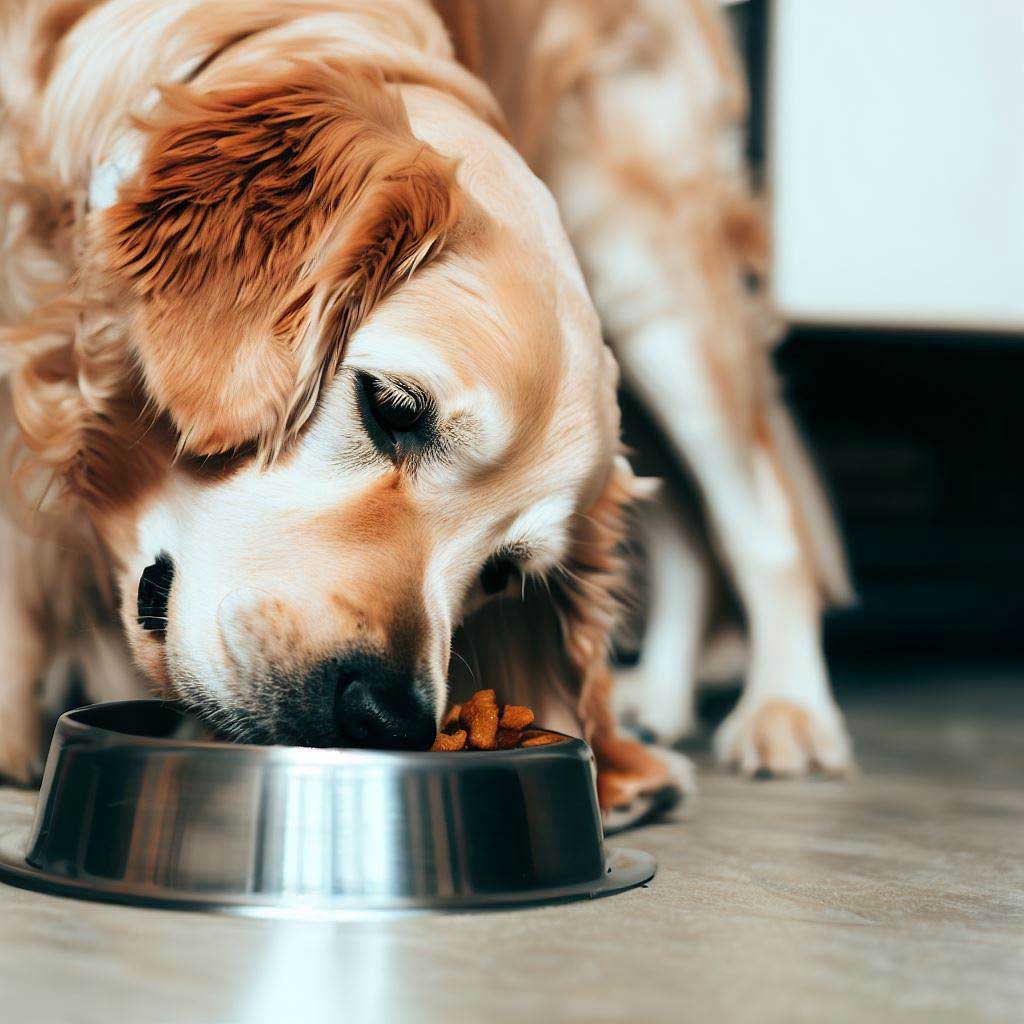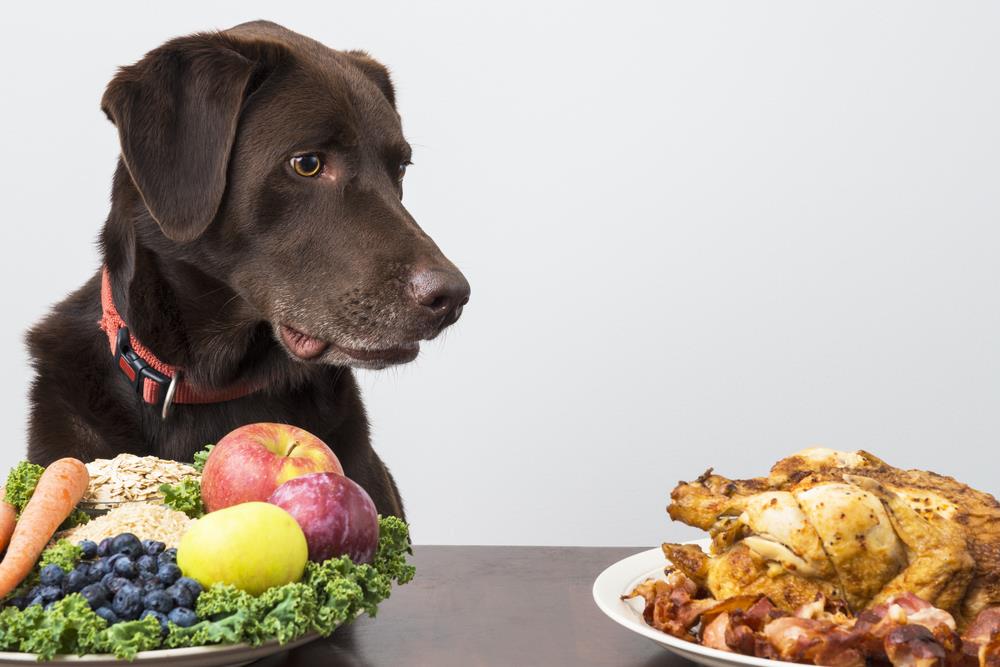Do You Need To Understand Dog Nutrition?
Understanding Dog Nutrition – Feeding Dogs The Right Nutrients. Tips for a healthy diet to make every meal count for your furry friend.
Table of Contents

When it comes to caring for your beloved four-legged friend, understanding dog nutrition is fundamental. The food your dog consumes plays a critical role in his overall health, longevity, and vitality. But, navigating the complex world of dog food can often seem daunting. Don’t worry, we’ve got you covered.
Why is Understanding Dog Nutrition Important?
Like humans, dogs require a balanced diet to remain healthy and active. The right diet can improve your dog’s immune system, maintain a healthy gastrointestinal tract, keep joints mobile and muscles strong, and promote a glossy coat and healthy skin.
Understanding dog nutrition is crucial for the health and longevity of your pet. Food fuels not just their daily activities but also their growth, body repair, immune functioning, and overall well-being.
Here’s why it’s so important:
- Balanced Diet: Dogs need a balance of proteins, carbohydrates, fats, vitamins, minerals, and water. A deficiency or excess of these can lead to health problems. For instance, insufficient protein can affect a dog’s muscle mass and immune system, while too much fat can lead to obesity.
- Optimal Weight: Understanding nutrition helps maintain an optimal weight for your dog. Overweight dogs are at risk of numerous health problems including diabetes, heart disease, and joint problems.
- Tailored to Individual Needs: Every dog is unique. Breed, age, size, and activity level all play a role in determining what and how much a dog should eat. For instance, puppies require different nutrients compared to adult dogs or senior dogs. Similarly, active breeds require more calories compared to less active ones.
- Preventing Illnesses and Allergies: Some dogs can develop allergies or intolerances to certain types of food. By understanding dog nutrition, you can pinpoint these triggers and avoid them, preventing discomfort or illness in your pet. Certain diets can also help manage medical conditions, like kidney disease or pancreatitis.
- Longevity and Quality of Life: Proper nutrition can help prolong your dog’s life and improve its quality. A diet rich in essential nutrients can support cognitive function, maintain optimal body condition, and help keep your dog active and happy well into their senior years.
In essence, whether you’re at home or on the road traveling, understanding dog nutrition equips you to make the best choices for your pet’s health. This ensures that whatever your specific circumstances are, they lead a long, healthy, and active life.
What Constitutes a Balanced Diet for Dogs?
Just as every human has unique dietary needs, so too does every dog. Factors such as breed, age, size, and health play a crucial role in determining the ideal diet for your dog.
Protein
As the cornerstone of a healthy canine diet, protein fuels your dog’s overall growth, repairs body tissues, and contributes to a robust immune system. Amino acids in proteins are the building blocks of your pet’s body, supporting everything from muscle development to skin and coat health.
High-quality sources of protein like chicken, beef, fish, or lamb should form the bulk of your dog’s diet. Pay attention to the protein content on dog food labels, especially for puppies, active, and pregnant dogs who require higher protein levels for optimal health.
Carbohydrates
Carbohydrates provide your dog with the energy they need for their day-to-day activities. Choose complex carbs like sweet potatoes, brown rice, or oats, which release energy slowly and help maintain steady blood sugar levels.
While not technically essential for dogs, carbohydrates provide readily accessible energy for your furry friends. They also support gut health by promoting beneficial gut bacteria.
In dog food, carbs come primarily from grains and vegetables. Complex carbohydrates, such as those from whole grains like brown rice or oats, or starchy vegetables like sweet potatoes, are particularly beneficial.
They offer sustained energy release and are packed with vital fiber, aiding in digestion and preventing issues like constipation.
Fats
Fats are a concentrated source of energy for dogs. They help absorb vitamins, protect internal organs, and maintain healthy skin and coat. Look for good fats, like omega-3 and omega-6 fatty acids, in your dog’s diet.
Often misunderstood though, fats are indispensable in a balanced canine diet. They provide the most concentrated source of energy, help your dog absorb fat-soluble vitamins, protect internal organs, and promote healthy skin and a glossy coat.
Essential fatty acids, like Omega-3 and Omega-6, can’t be produced by your dog’s body and must come from their diet. Foods like fish and flaxseeds are rich in these beneficial fats. These are essential fats that play vital roles in a dog’s health.
They support brain development, reduce inflammation, and promote healthy skin and coat.
Remember, while fats are necessary, they’re also calorie-dense, so balance is key to prevent obesity.
Vitamins and Minerals
These are essential for your dog’s overall health. They support bone health, nerve function, hormone production, and more. Vitamins and minerals can be found in fruits, vegetables, and specially-formulated dog food.
These micro-nutrients play vital roles in numerous metabolic reactions in your dog’s body. Vitamins support immune function, energy production, and overall cell function.
Minerals are crucial for bone development, nerve function, hormone synthesis, and more. For example, calcium and phosphorus are essential for bone health, while Vitamin A promotes eye health.
Fruits, vegetables, and meats in your dog’s diet provide these vitamins and minerals naturally. Some might also be added to commercially prepared dog foods to ensure a balanced diet.
Water
The most essential nutrient for all life forms, including dogs, is water. Water carries and transports vital nutrients to cells, helps regulate body temperature, aids digestion, and facilitates countless other bodily functions.
Always ensure your dog has access to clean, fresh water.
Fiber
While often overlooked, fiber plays an essential role in a dog’s diet. It can help manage weight, control blood sugar levels, and improve digestive health. High fiber foods for dogs include pumpkins, sweet potatoes, brown rice, and certain fruits and vegetables.
Life-Stage Specific Nutrients
Depending on your dog’s life stage (puppy, adult, senior), the nutritional needs may vary. For example, puppies need more protein and certain nutrients like DHA for brain development. On the other hand, senior dogs may require fewer calories but more fiber and specific nutrients for joint health.
Understanding Dog Nutrition: Food Labels
Deciphering dog food labels can be challenging. Look for brands that list a high-quality source of protein as the first ingredient. Avoid foods with excessive fillers, artificial colors, and preservatives.
Unraveling this mystery of dog food labels is key to ensuring your pet gets the nutrition they need. Firstly, look for the statement of “complete and balanced,” which means the food meets the minimum nutritional requirements established by the Association of American Feed Control Officials (AAFCO).
Next, review the ingredients list – they’re listed in order of weight. A high-quality protein source should be at the top. Avoid foods with excessive fillers (like corn and wheat gluten), artificial colors, and preservatives.
Also, note the guaranteed analysis section, which provides the minimum amounts of protein and fat, and maximum amounts of fiber and moisture. Understanding these elements empowers you to make an informed choice for your pet’s wellbeing.
Special Dietary Considerations
Different stages of life and certain health conditions may require special dietary considerations for your dog. Always consult your vet when changing your dog’s diet or if you notice any adverse reactions to food.
Puppies
Puppies require a diet rich in protein and fat to support their rapid growth and development. They also benefit from specific nutrients like DHA for brain development.
Senior Dogs
Senior dogs have different nutritional needs than their younger counterparts. They typically need a diet lower in calories but higher in fiber, along with certain nutrients to support joint health.
Dogs with Health Issues
Certain health conditions, like diabetes or kidney disease, require specialized diets. Your vet can provide guidance on the best diet for managing your dog’s health condition.
Why Understanding Dog Nutrition is Key to a Happy, Healthy Puppy Life
A well-balanced diet is one of the most effective ways to prolong your dog’s life and enhance their happiness. Remember, the best diet for your dog depends on their specific needs. Always consult with a vet or a pet nutritionist for the best advice.
Armed with this knowledge, you’re well on your way to providing your dog with the nutritional support they need to lead a happy, healthy life. Here’s to many joyful meals (and tail wags) ahead!

Typical Balanced Meal Plan
Here’s a simple, balanced weekly meal plan for an average adult dog. For some this will be way too much to do, however if you’re serious about your dogs health, you should at least try and prepare some of the below nutritious food for your beloved pooch.
This is a general guide and should be adjusted based on your dog’s age, size, breed, health, and activity level. Always consult with your vet before making significant changes to your dog’s diet.
Feeding Frequency
Most adult dogs should be fed twice daily to prevent them from getting overly hungry and to keep their blood sugar stable.
Understanding Dog Nutrition: Meal Plan Example
| Day | Morning | Evening |
|---|---|---|
| Monday | Dry kibble with a spoonful of canned pumpkin for fiber | Boiled chicken and brown rice with steamed broccoli |
| Tuesday | Scrambled egg and dry kibble | Wet dog food mixed with steamed carrots |
| Wednesday | Dry kibble with a spoonful of cottage cheese for extra protein | Boiled salmon with quinoa and steamed peas |
| Thursday | Wet dog food with a small amount of plain, cooked oatmeal | Cooked turkey and sweet potato |
| Friday | Dry kibble mixed with canned wet food | Boiled beef with barley and steamed spinach |
| Saturday | Boiled chicken with rice and a dollop of plain yogurt | Wet dog food with mixed with steamed green beans |
| Sunday | Wet dog food mixed with dry kibble | Boiled fish with rice and steamed zucchini |

Please note that variety is key for ensuring your dog gets a range of different nutrients. Make sure to choose high-quality, lean proteins, complex carbohydrates, and a mix of different vegetables.
Also, ensure any ‘human’ food given is safe for dogs and served in moderation.
Remember to also keep your dog hydrated by providing fresh water at all times. Treats can be given in moderation, but make sure they don’t comprise more than 10% of your dog’s daily caloric intake.

Conclusion: Understanding Dog Nutrition
The Key to Your Pet’s Health
You might’ve heard the saying, “You are what you eat,” and this couldn’t be more accurate when it comes to understanding dog nutrition. Dogs, just like humans, require specific nutrients in their diet to thrive. Ensuring your dog receives a well-balanced meal isn’t merely about filling their bowls; it’s about extending their life and enhancing its quality.
Why Understanding Dog Nutrition is Important for the Health and Well-being of Any Dog?
Understanding dog nutrition is not just about keeping your dog’s tummy full. It’s about providing them with the energy they need, supporting their immune system, and ensuring they have the right nutrients for growth, repair, and overall vitality. For instance, a deficiency in essential fatty acids can lead to a dull coat and flaky skin, while lack of calcium can weaken their bones.
Benefits of a Balanced Diet
A balanced diet plays a pivotal role in your dog’s health:
- Boosted Immunity: Foods rich in antioxidants, like blueberries, bolster the immune system, protecting your dog from illnesses.
- Optimal Weight: Proper nutrition prevents weight issues, which can lead to diabetes or joint problems.
- Higher Energy Levels: A diet fitting for your dog’s breed and age means better stamina and more playful hours.
- Better Digestion: Fiber-rich ingredients ensure regular bowel movements and reduce the risk of bloating or constipation.
By truly understanding dog nutrition, you can offer your pet these benefits and more.
What is the Best Nutrient Food for Dogs?
While all dogs require a mix of protein, carbohydrates, fats, vitamins, and minerals, the “best” food often depends on your dog’s individual needs. However, as a rule of thumb, always look for foods with high-quality animal proteins listed as the first ingredient, like chicken or lamb. Avoid fillers, artificial additives, and by-products. Brands that invest in research and consult with veterinary nutritionists tend to provide more nutritionally balanced options.
What Nutrients Do Dogs Need in Homemade Dog Food?
Thinking of cooking for your furry friend? Homemade dog food can be nutritious if done right. Key nutrients include:
- Protein: Lean meats like chicken, turkey, or beef are essential. Eggs and fish are also excellent protein sources.
- Carbohydrates: Quinoa, brown rice, and sweet potatoes offer energy without the added sugars.
- Fats: Fish oil or flaxseed oil provides omega-3 and omega-6 fatty acids, crucial for brain health and a shiny coat.
- Vitamins and Minerals: Fresh veggies like carrots, peas, and spinach offer a variety of vitamins and minerals. Consider adding a pinch of turmeric for its anti-inflammatory properties or blueberries for a boost of antioxidants.
What Can I Give My Dog for Better Nutrition?
Apart from their regular meals, consider incorporating natural supplements:
- Probiotics: To enhance gut health and digestion.
- Glucosamine: To support joint health, especially in older dogs.
- Fish Oil: For its omega fatty acids, promoting a healthy coat and reducing inflammation.
- Calcium Supplements: Especially important if you’re feeding homemade meals without bones.
5 Ways To Restore Your Dog’s Gut Health
Understanding dog nutrition extends to understanding your dog’s gut health. A healthy gut can ward off many diseases.
- Probiotic Supplements: These introduce beneficial bacteria into the gut, promoting better digestion.
- Fermented Foods: Foods like kefir can be a natural source of probiotics.
- Bone Broth: Rich in gelatin, it can help protect the lining of the digestive tract.
- Limit Antibiotics: Overuse can harm beneficial gut bacteria. Use only when prescribed by a vet.
- High-Fiber Foods: Think pumpkin or beet pulp, which act as prebiotics, feeding the good bacteria in the gut.
In conclusion, every dog parent’s goal is to ensure their pet leads a long, healthy, and active life. By investing time in understanding dog nutrition, you’re taking a significant step toward achieving that goal. After all, a well-nourished dog is a happy dog!

FAQ: Understanding Dog Nutrition
What constitutes a balanced diet for dogs?
A balanced diet for dogs requires an appropriate mix of proteins, carbohydrates, fats, vitamins, minerals, and water. Proteins are essential for growth and tissue repair, carbohydrates provide energy, and fats are vital for skin and coat health, absorbing vitamins, and providing concentrated energy.
Vitamins and minerals support a range of bodily functions from bone health to immune function. Lastly, clean, fresh water is critical for maintaining your dog’s health.
How much protein does my dog need?
Dogs are omnivores with a carnivorous bias, so protein is a crucial part of their diet. According to AAFCO recommendations, adult dogs should get at least 18% of their daily caloric intake from protein, while puppies and pregnant or nursing dogs require at least 22%.
However, factors such as breed, age, size, and activity level can influence the precise amount of protein your dog may need.
Are carbohydrates essential in a dog’s diet?
While dogs do not have a biological need for carbohydrates, they are an excellent source of quick energy and dietary fiber. Fiber aids in digestion and helps manage weight by creating a feeling of fullness. Whole grains like brown rice or oats, or starchy vegetables like sweet potatoes, are great sources of complex carbohydrates.
How do I understand dog food labels?
Understanding dog food labels is vital to ensure your pet’s health. The statement “complete and balanced” means the food meets the nutritional standards established by AAFCO.
The ingredients are listed by weight in descending order. High-quality proteins should be listed first, followed by nutrient-rich vegetables and grains. Avoid products with unspecified meat sources, artificial colors, flavors, or preservatives.
What are the essential vitamins and minerals for my dog?
Essential vitamins for dogs include Vitamin A (eye health), Vitamin D (bone health), Vitamin E (cell function), and Vitamin K (blood clotting), among others. Important minerals include calcium and phosphorus (bone health), potassium (nerve function), iron (blood health), and zinc (skin and coat health).
These vitamins and minerals are usually adequately provided in commercial dog foods, but additional supplementation may be needed based on specific health concerns.
Can my dog be a vegetarian?
Technically, dogs can survive on a vegetarian or vegan diet, but it’s challenging to meet all their nutritional needs without including meat.
Dogs require specific amino acids and certain vitamins that are mainly found in animal products. If you wish to feed your dog a vegetarian diet, it’s critical to do so under the guidance of a veterinary nutritionist.
How often should I feed my dog?
Most adult dogs thrive when fed two meals per day, while puppies often require three to four meals per day until they are about one year old. Regular feeding helps to stabilize a dog’s metabolism and blood sugar levels, but the exact feeding frequency may depend on your dog’s age, health, and lifestyle.
How do I know if my dog is overweight?
Signs of being overweight in dogs include difficulty feeling the ribs when you touch their sides, loss of an apparent waist, fat deposits over the spine and base of the tail, and a pendulous abdomen. It’s best to consult a vet if you’re unsure since certain breeds have different standards.
What are the common food allergens for dogs?
The most common food allergens for dogs are proteins, particularly those from beef, dairy, wheat, egg, chicken, lamb, soy, pork, rabbit, and fish.
Signs of food allergies in dogs can include itching, poor coat quality, chronic ear or paw infections, and gastrointestinal symptoms like diarrhea and vomiting. If you suspect a food allergy, consult your vet for diagnosis and management strategies.
Is it safe to feed my dog raw food?
Feeding a raw diet to dogs is a controversial topic. Proponents argue it’s more natural and healthier for the dog, while opponents point out the risks of bacterial contamination and nutritional imbalances.
If considering a raw diet for your dog, it’s critical to consult with a veterinarian or a trained canine nutritionist to ensure all nutritional needs are met, and food safety practices are followed.
Is the best healthy dog diet homemade?
While homemade diets can be healthy, they must be carefully formulated with the help of a veterinarian or nutritionist. Without proper balance, homemade diets can lead to nutritional deficiencies or excesses.
What are the dog nutritional requirements percentages?
Adult dogs typically require about 18-25% protein, 5-15% fat, and a balance of carbohydrates, vitamins, and minerals. Puppies have different needs, with higher protein around 22-32%. Always consult with a vet for specific needs.
What nutrient is most important for dogs?
No single nutrient can be labeled as most important, as dogs need a balanced diet of proteins, fats, vitamins, and minerals. Protein is vital for growth and energy, but all nutrients must be in harmony.
How do you read a dog feed chart?
A dog feed chart gives recommendations on feeding amounts based on weight and life stage. Follow the chart by matching your dog’s weight and adjusting portions according to activity level, health condition, and the specific food’s guidelines.
What is the healthiest way to feed a dog?
The healthiest way to feed a dog is to provide a balanced diet suitable for the dog’s age, breed, and health needs. Consult with a vet to ensure that the diet meets all nutritional requirements.
Where can I get a dog nutrition chart for a puppy?
A nutrition chart for a puppy can be obtained from veterinarians, reputable pet food manufacturers, or pet nutrition books. Online resources from veterinary colleges and associations are also reliable.
What are the most important dog food nutrition facts?
Key nutrition facts for dog food include protein content, fat levels, carbohydrates, vitamins, and minerals. Look for high-quality ingredients and ensure the food is appropriate for your dog’s life stage.
What’s the best dog food balance for healthy dogs?
The best balance includes a mix of high-quality proteins, healthy fats, carbohydrates, vitamins, and minerals, tailored to your dog’s specific needs. Consultation with a veterinarian can help in achieving this balance.
Where can I find a dog nutrition calculator?
Dog nutrition calculators can be found on various pet food manufacturers’ websites, veterinary sites, and online platforms specializing in pet care.
Where can I find a dog protein calculator?
A dog protein calculator can be found on specialized pet nutrition websites, some pet food brands’ sites, or by consulting with a veterinary nutritionist.
Are complete and balanced dog food diets easy to make?
Creating a complete and balanced dog food diet can be complex and requires knowledge of nutritional needs. It’s often best to consult with a veterinary nutritionist or use commercial diets formulated to meet these standards.
Is pet nutrition important for traveling dogs?
Yes, maintaining proper nutrition is essential for traveling dogs. Ensuring a consistent diet helps prevent gastrointestinal issues and keeps energy levels stable during travel.
What pet foods are the worst for dogs?
Foods containing harmful additives, fillers, artificial colors, or low-quality proteins can be unhealthy. It’s wise to choose reputable brands with transparent ingredient lists.
My pet’s diet isn’t working, why?
Several factors could contribute, including underlying health conditions, allergies, or improper balance. Consultation with a veterinarian will help identify and solve the issue.
Are dog nutrition books any good?
Dog nutrition books can be valuable if authored by reputable veterinarians or animal nutritionists. They can provide insights and guidelines, but individualized advice from a vet is always best.
My dog decreased eating healthy food, what do I do?
A decrease in appetite could signal health issues. It’s best to consult with a veterinarian to rule out underlying problems and to adjust the diet accordingly.
Does nutrition play a big part in dog training?
Proper nutrition supports energy levels, focus, and overall well-being, which can significantly enhance a dog’s responsiveness and success in training.
Why is feeding nutritional foods important for carnivores?
As carnivores, dogs require specific nutrients found in animal products. Feeding them a balanced diet with high-quality proteins ensures they receive essential amino acids and energy.
How does fatty foods affect the body of my dog?
Excessive fatty foods can lead to obesity and related health problems like diabetes, heart disease, and joint issues. Balanced fat intake is vital for energy and overall health.
Take Your Dog Training to the Next Level with Elite Online Courses
If you’re in search of thorough guidance, look no further than our standout article, “Best Online Dog Training Courses: Any Dog Will Love.” We provide an in-depth analysis of 15 superb online courses, spotlighting the three most effective ones for dogs of all ages.









